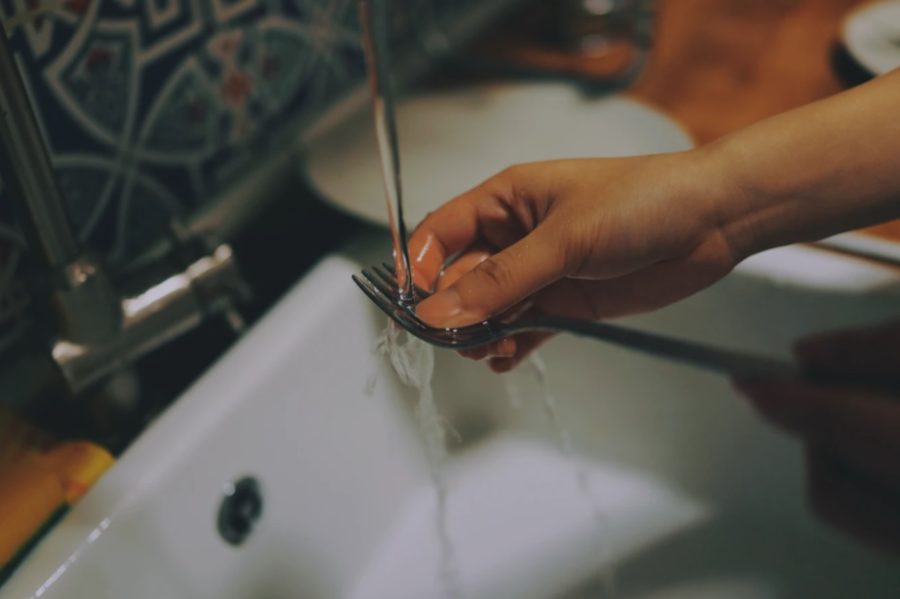
Simple Ways to Prevent Plumbing Disasters
When a plumbing disaster strikes, it takes a lot of money and time to repair. Instead of waiting for it to strike, here are five simple ways to make sure you avoid any plumbing issues. Each of the tips is easy to implement and will not cost you money or time, so why wait for it all to go wrong when you can prevent fiascos with ease.
1. Be Careful With What You Pour Down The Sink
A common mistake people make is to put anything and everything down the drain. Instead of scraping food off properly into the bin, it gets rinsed off the plate and down the drain. This causes nasty blockages. Another big mistake is pouring grease down the sink, you should never do this! It creates severe and quite disgusting clogs that will be expensive to repair and can take some time too. To effectively deal with grease, put it in a container and chill in the fridge until it hardens, then you can scoop it out into a bin.

2. Have The Plumber’s Number In Case Of Emergencies
It is important to be prepared for the worst, as sometimes, despite our best efforts we can’t prevent every accident. If one of the main pipes in your house bursts, you will want to have a plumber’s number handy for immediate action. Having the number of trusty plumbers in OC should be one of the first things you do when moving into a new home or area. To make sure you are getting the best tradesman on hand, check the hours they are open, the locations they work in, and the services they offer. If in doubt, check the reviews and this will hopefully shed some clarity on who will be the best plumber for you.
3. Always Use Drain Strainers

Drain strainers are a cheap and effective way to make sure your pipes do not get clogged up. You ought to use them in the shower and your kitchen sink. When showering, our hair falls out, and if you are someone with long hair or even live with multiple people with long hair, you will need a drain strainer to prevent that hair from forming a clumpy clog that has merged with conditioners and shampoos in the drain. There is no worse feeling than sticking your hand down the drain to pull out the smelly hair snake that has been blocking the water from going down.
Additionally, if you do not use a drain strainer in the kitchen sink, each bit of food that didn’t get properly scraped in the bin will end up being rinsed down the drain. We think that a little bit of food here and there won’t make a difference until suddenly one day it does. A clogged sink can be a nightmare to deal with and it is not kind on the bank account either. So make sure to be using drain strainers to easily prevent unnecessary clogs.
4. Regularly Clean Pipes
Cleaning your pipes once a month or so can make a big difference. There are lots of drain cleaners and unblockers that you can buy, alternatively, you can use baking soda and vinegar to do the job. Using baking soda and vinegar is a lot safer than the store-bought cleaners, so that is something to bear in mind if you have children running around. Let your mixture sit for a while, perhaps even overnight, and then rinse it away with hot water. This costs next to nothing to do and takes no time at all to do, yet it is highly effective as a preventative measure in avoiding those pesky plumbing fiascos.
5. Prevent Frozen Pipes
When winter arrives it is important to be mindful of the possibility of your pipes freezing, and then bursting. If this happens, you are going to be looking at a hefty bill. There are a few easy ways to prevent this from happening. Firstly, turn the heat on in your home so that the temperature of the pipes doesn’t drop. Alternatively, you can buy insulation and apply these to the pipes, they are easy to apply and protect any exposed pipes from the cold.
If you are going on holiday over the winter period, you could cut off the water supply and put the heating on very low heat. While it may seem costly to leave the heating on when you are not there, it will also be even more costly if you have to repair burst pipes.
Each of these five suggestions will not take up much time, nor are they very expensive to do. So save yourself from the hassle and expense of a plumbing disaster, and put these preventative measures in place.











